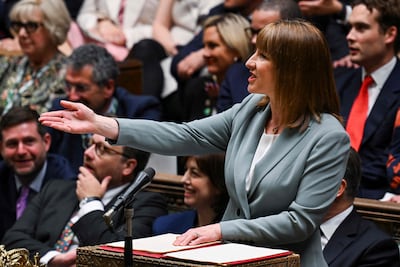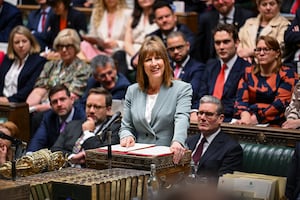The UK’s Foreign Office has taken the brunt of cuts in the latest government spending review, prompting fears that Britain’s “soft power” capabilities will be heavily eroded.
Staff face a cut to their overseas allowances and potentially being downgraded on pay scales as the department tries to save £78 million a year, a supplementary document revealed.
With a major reduction in overseas aid to fund an increase in defence spending already announced, there is growing concern that Britain’s ability to use “soft power” diplomacy tools will be severely curtailed.
The cuts were condemned by senior Labour MP Emily Thornberry, chairwoman of the cross-party Foreign Affairs Committee, who said they were “alarming and inconsistent” and could damage Britain’s global influence.
The reduction in Foreign Office spending was part of the review announced by Chancellor Rachel Reeves, in which the military and security services, and the National Health Service receive significant increases in spending.

Efficiency plans
Morale at the Foreign Office is understood to have taken a blow after the small print of the review, labelled “departmental efficiency plans”, shows proposed cuts to pay and allowances.
The government department, which has 156 embassies and 49 consulates worldwide, will “tighten grading standards to ensure roles are … appropriately remunerated”.
“This will counter a pattern of grade inflation that has emerged over the past decade and more robustly support cost control,” the report warned.
Those operating in overseas postings, where they are compensated to maintain a standard of living comparable to the UK, are fearful that they too face cuts.
The overseas allowance would face “reform” and “streamlining” with the monetary value of specific allowances “being reviewed and revised”, the report said.
“This is an ambitious plan to transform the FCDO [Foreign Commonwealth and Development Office] into a smaller, technologically advanced department with planned investment in both workforce reform and digital transformation that will drive significant efficiencies,” it stated.

Harshest cuts
Ms Thornberry said that in the current international turmoil Britain had “never been more needed as a force for good”. However it was, she added, “very concerning that the FCDO appears to be suffering the harshest real-terms cuts”.
With the overseas aid budget already cut from 0.5 per cent to 0.3 per cent of GDP to pay for defence, she was “deeply concerned about the strain that this spending review will place on the entirety of the department”. She would scrutinise the report to ensure the department was “not suffering major further cutbacks”.
“Real-term cuts to the Foreign Office budget are alarming and inconsistent with the government’s objective to position the UK as a leader on the world stage,” she warned.

BBC World Service worries
Ms Thornberry also raised concern about the lack of “clarity or concrete commitment” to finance the British Council and the BBC World Service, which both rely heavily on Foreign Office funding.
The BBC has already scaled back the World Service, prompting concern about the UK’s soft power overseas. BBC Arabic radio was among 10 foreign language services to stop broadcasting in 2023.
Russian-backed news services have begun broadcasting in Lebanon on the former BBC Arabic frequency, leading to acknowledgement that closing the service may have been a mistake.

It has also been reported that ministers have asked the British Council look at efficiencies that could make the influential overseas organisation close in 60 countries
“If we aren’t proactive in maintaining our global influence, we can expect our standing to diminish, and for autocratic states to fill the vacuum we leave,” Mrs Thornberry concluded.
The efficiency report also revealed that the Integrated Security Fund, which supports initiatives on national security risks domestically and overseas, would need to “deliver efficiency gains” of £10 million within three years, mainly through “automation, AI, and digital tools”.
Lib Dem MP Rachel Gilmour warned on X that cutting the foreign aid budget by £6 billion a year could “not only undermine our soft power, but also leave vital regions exposed to hostile powers and geopolitical rivals.”



